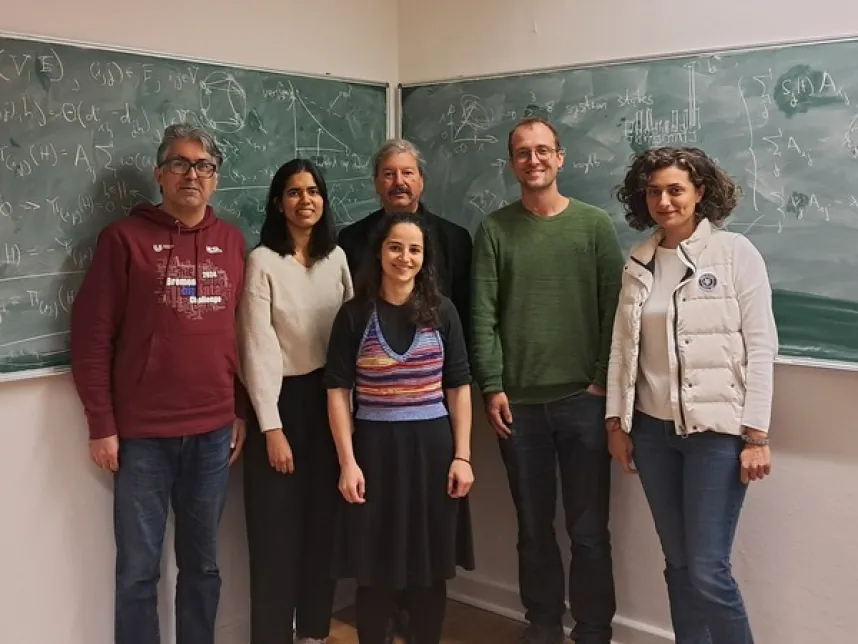Researchers from Constructor University win the prestigious PEGS DREAM Challenge for groundbreaking work on hypercholesterolemia
A team of computational systems biology experts from Constructor University won first place in a global science competition—the PEGS Dream Challenge—seeking to unravel the mysteries of hypercholesterolemia. DREAM Challenges are a globally recognized and prestigious initiative for advancing biomedical and systems biology research via crowd-sourced competitions. Over the past 15 years, a total of 60 DREAM challenges have been held, each focusing on a unique aspect of biomedicine. A total of 345 solutions and models were submitted to this challenge by teams from Africa, Asia, Australia, Europe and North America.
While hypercholesterolemia, or high cholesterol, can be inherited, for the vast majority of hypercholesterolemia cases the causes are not clear. Although studies have shown several risk factors, including diets with excessive saturated and trans fats and insufficient exercise, the exact triggers of the disease are unknown. Individuals with the disease are at higher risk of heart attack, stroke, and cardiovascular disease—the number one cause of death in the world. The aim of this PEGS Dream Challenge was to better understand and identify the risk factors of hypercholesterolemia, to calculate individual risk for high cholesterol, and to formulate new hypotheses that go beyond known risk factors for the disease.
Participating teams were provided with a multi-dimensional genotype, phenotype and environmental data from the Personalized Environment and Genes Study (PEGS) to develop their own model. In October, the team was invited to present its methodology for predicting the risk of hypercholesterolemia, as well as their hypothesis about its cause, at a conference on the campus of the University of Wisconsin.
"Our group's expertise lies in the systematic understanding and identification of patterns in large data sets. The DREAM Challenge was therefore a welcome opportunity for us to compare our skills in an international competition," says Dr. Johannes Falk. Falk is a postdoctoral fellow in the Computational Systems Biology Group, headed by Prof. Dr. Marc-Thorsten Hütt, and led the team of researchers in Hütt's group who worked on the challenge. The team from Constructor University first carefully analyzed the genomic data and identified potential genomic risk factors. In a second step, they employed machine-learning, a subfield of artificial intelligence that gives computers the ability to learn without explicit programming, to identify systematic links between lifestyle or exposure and high cholesterol. Joining Falk and Hütt on the team were Jyoti, Dr. Ali Salehzadeh-Yazdi, Venetia Voutsa, and Eda Cakir.
When analyzing the data, the team identified a possible risk factor that had not previously been mentioned in the context of hypercholesterolemia. For example, the findings showed a strong correlation between being infected with “German Measles” and developing hypercholesterolemia. It may even be possible to determine this risk through antigen analysis. “Hypercholesterolemia often has no symptoms and the only way to find out about a possible disease is through a medical examination. To this end, the potential benefits of our model are enormous as it could identify people at increased risk," Falk explained. It’s still early days, however. In their final report, the researchers suggested adding the result of an antibody test to the existing PEGS data, which would allow them to further test their hypothesis.
Questions answered by:
Dr. Johannes Falk | Postdoctorate Fellow, School of Science, Constructor University
jfalk@constructor.university
